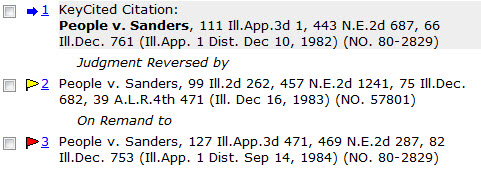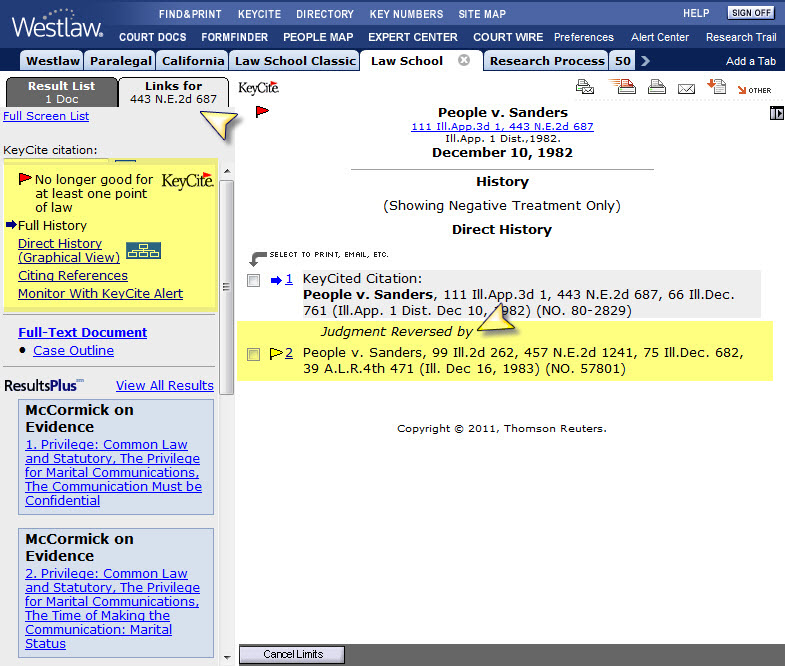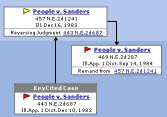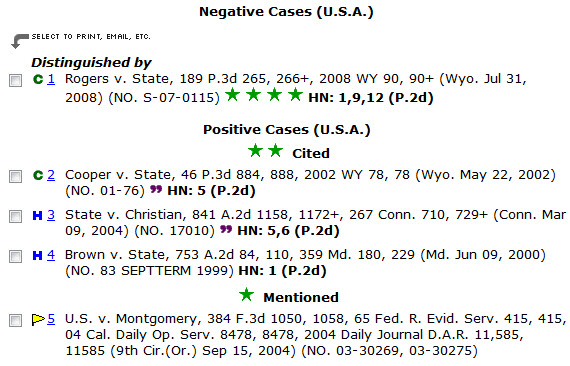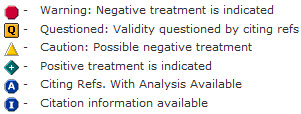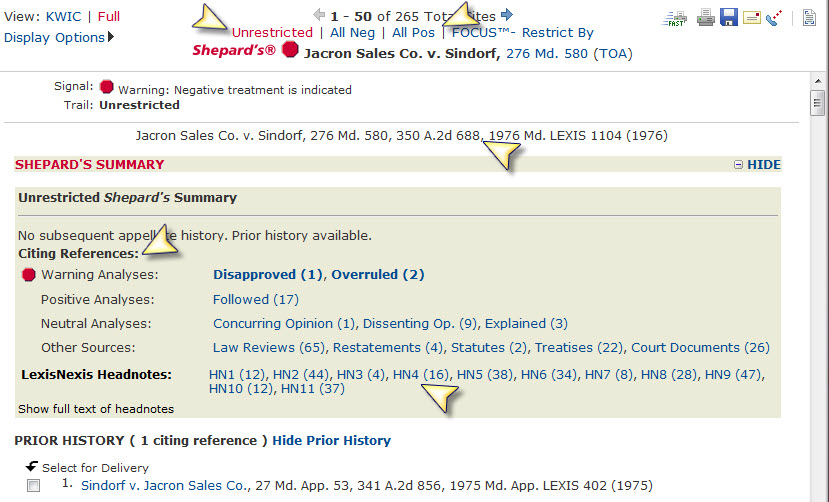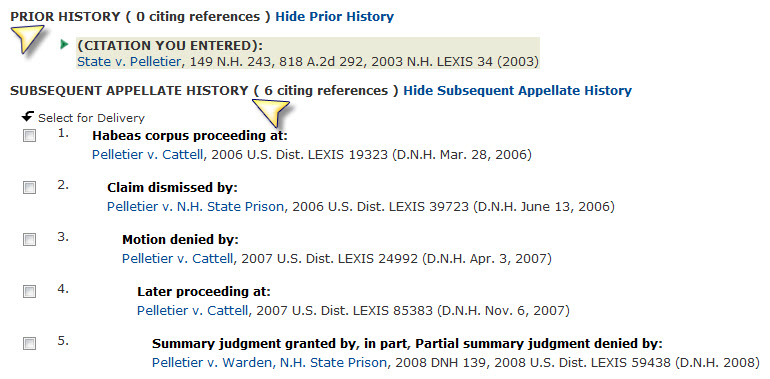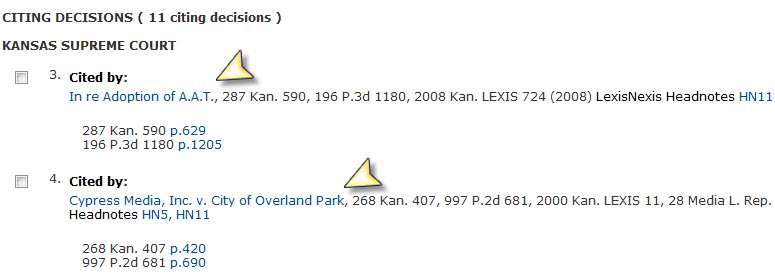| Volume II, Chapter §8.5 Research Sources for Primary Authority |
|
Interactive Study | Validating Authority
Introduction
Shepard's goes back about a century. It is the original validation tool. Since the courts do not rip out or stamp cases, statutes, or other authorities that had been overturned or otherwise invalidated, there had to be a way to tell if the authority being relied upon was still valid. Shepard's was the solution. Shepard's, though, signed a contract with Lexis to offer its validation service exclusively on Lexis (and, of course, still in the law library). Thus, Westlaw desperately needed to come up with a validation solution of its own. That system became KeyCite. You are not required to Shepardize in the Law Library for the assignments in this manual. The reason is that most law libraries have stopped subscribing to the hard copy of Shepard's. Those volumes are remarkably expensive, and they are the victim of tight budgets. Instead, most law libraries provide public access to Westlaw and/or Lexis to validate authority found in the Law Library. Thus, for this program, only Shepard's on Lexis and KeyCite on Westlaw are required to be studied. What can be validated? Oh, and have you noticed that the systems are very similar in structure? That should help you. If you can use one, you can use both. Cited v. Citing Authority
Citing authority is "citing" the Cited authority. I know. Confusing. But keep at it. It will make sense. Eventually! SHEPARD'S The lesson? Validate all authority. Not only your own, but any authority relied upon from the other side. Also, be thorough. The opposing party in the above example may have done a quick Shepard's check, but if they did, they did not go far enough. Most likely, they did not validate the cases at all, either with Shepard's or KeyCite. Be conscientious and thorough when validating authority.
|
The Good, the Bad, and the Ugly Time Sheets
Click on the examples of Time Sheets below to zoom in and compare. Yours should look like the Good example.
 |
 |
 |
The Good |
The Bad |
The Ugly |
Time Sheet Download
Click here to download a Time Sheet that automatically adds up your billable hours. You should keep track of any research or writing you do on behalf of your client, including the research assignments (both online and in the law library) in this chapter.
Commonly Asked Questions . . .
Click here if you are having difficulty seeing answers to the quiz below

